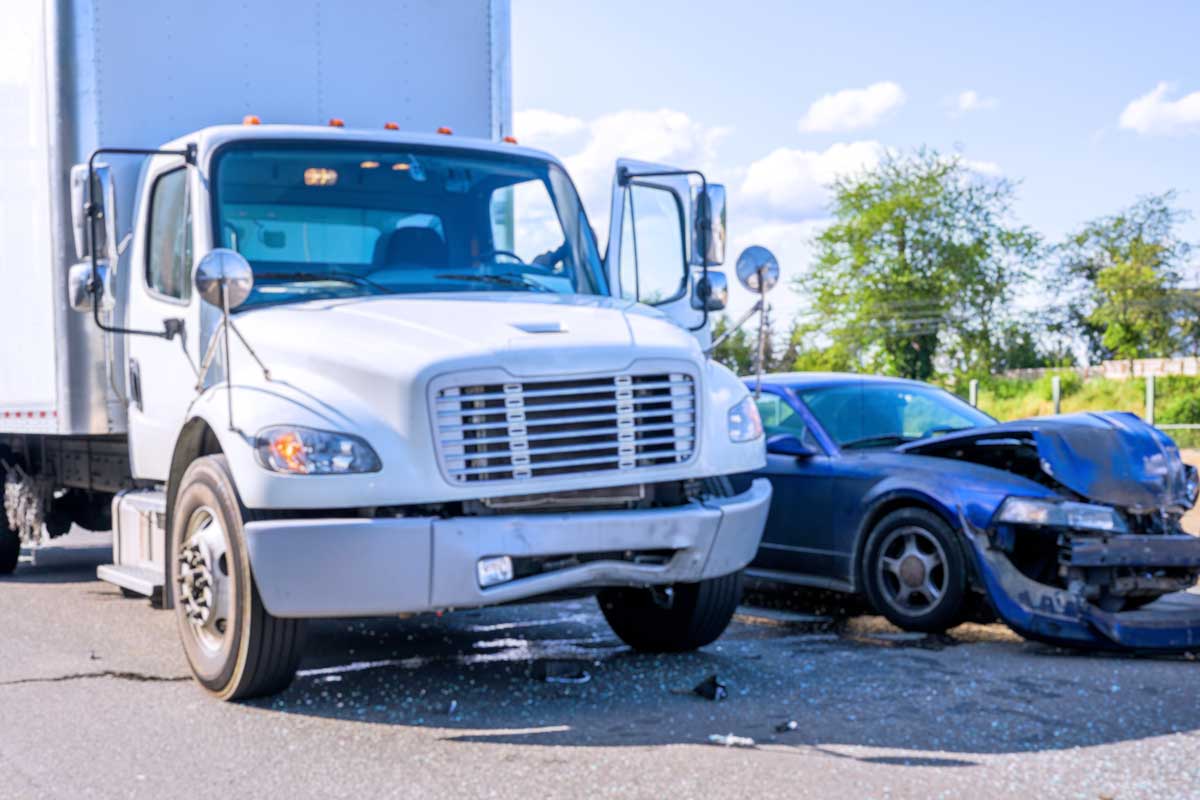Key Takeaways
Truck accidents, including those involving 18-wheelers and commercial delivery vehicles, often result in severe injuries due to their size and weight.
Common causes include driver fatigue, improper loading, mechanical failures, and negligence from trucking companies.
Victims may suffer long-term consequences, including spinal cord injuries, traumatic brain injuries, amputations, and permanent disabilities.
Liability in truck accidents can extend beyond the driver to trucking companies, manufacturers, and maintenance providers.
A personal injury attorney can help navigate complex trucking regulations, gather crucial evidence, and fight for full compensation.
The Reality of Truck Accidents
Accidents involving 18-wheelers, semi-trucks, and commercial delivery trucks (such as Amazon, UPS, and FedEx vehicles) are among the most dangerous on the road. These large vehicles can weigh 20-30 times more than passenger cars, making collisions devastating for those involved. Unlike standard car accidents, truck accidents often cause severe or life-altering injuries, requiring extensive medical treatment, long recovery periods, and major financial burdens.
Victims of truck accidents often find themselves in a battle against large trucking corporations and insurance companies that are prepared to fight against claims. Many victims feel overwhelmed, wondering how they will cover medical expenses, lost wages, and long-term rehabilitation costs. Understanding your legal rights and options is critical to ensuring you aren’t left with the financial burden of an accident caused by someone else’s negligence.
Common Causes of Truck Accidents
Truck accidents are often caused by a combination of driver negligence, mechanical failures, and improper trucking industry practices. Understanding these causes can help determine liability and strengthen your claim.
Driver Fatigue
- Long hours on the road lead to exhaustion, slowing reaction times and increasing the likelihood of mistakes.
- Federal regulations limit driving hours, but some drivers and companies push these limits to meet deadlines.
Speeding or Reckless Driving
- Large trucks require more time to stop, making speeding or aggressive driving extremely dangerous.
- Delivery drivers for companies like Amazon, UPS, or FedEx often face strict delivery schedules, pressuring them to speed.
Distracted Driving
- Truck drivers using phones, GPS devices, or in-cab computers while driving can cause devastating accidents.
- Even a momentary distraction can be deadly when operating such a massive vehicle.
Improper Loading or Overloaded Cargo
- Overloaded trucks or unevenly distributed cargo can make vehicles harder to control or cause rollovers.
- Shifting cargo can lead to sudden weight imbalances, making turns and braking unpredictable.
Mechanical Failures and Poor Maintenance
- Faulty brakes, worn tires, and transmission failures increase the risk of crashes.
- Trucking companies are responsible for maintaining vehicles, but some cut corners to save money.
Negligence by Trucking Companies
- Unsafe hiring practices, failure to conduct background checks, or not enforcing rest breaks contribute to accidents.
- Pressure to meet tight delivery schedules can encourage risky driving behavior.
Poor Weather and Road Conditions
- Rain, snow, and fog reduce visibility and increase stopping distances, making safe driving crucial.
- Poorly maintained roads, construction zones, and highway congestion also play a role in crashes.
Common Injuries in Truck Accidents
Because of the sheer force of impact, truck accidents tend to result in catastrophic injuries, often requiring lifelong medical care and rehabilitation.
- Traumatic Brain Injuries (TBI): Severe head trauma can cause permanent cognitive or physical impairments.
- Spinal Cord Injuries & Paralysis: Damage to the spinal cord can lead to full or partial paralysis, drastically altering a victim’s life.
- Amputations: High-speed truck collisions can result in crushed limbs that require amputation.
- Fractured & Broken Bones: The force of impact can lead to multiple fractures, requiring surgeries and long recovery times.
- Internal Organ Damage: Blunt-force trauma can cause internal bleeding, ruptured organs, or long-term health complications.
- Severe Burns & Scarring: Fires or chemical spills from truck accidents can cause third-degree burns, requiring skin grafts and reconstructive surgeries.
What to Do After a Truck Accident
If you or a loved one has been involved in a truck accident, taking the right steps can protect your health and legal claim.
1. Seek Immediate Medical Attention
- Even if injuries seem minor, some internal injuries may not show symptoms right away.
- Follow all medical advice and keep detailed records of your treatment.
2. Call Law Enforcement
A police report serves as critical evidence in determining liability.
3. Gather Evidence at the Scene (if possible)
- Take photos of the accident scene, vehicle damage, and injuries.
- Get contact information from witnesses and all involved parties.
4. Do Not Speak to Insurance Companies Without Legal Advice
- Trucking and insurance companies may try to downplay your injuries or shift blame.
- Avoid providing recorded statements without an attorney present.
5. Consult a Personal Injury Attorney
- Truck accidents involve federal trucking laws, multiple liable parties, and complex investigations.
- An experienced attorney will preserve evidence, negotiate with insurers, and fight for fair compensation.
Who is Liable in a Truck Accident?
Truck accidents are more complex than standard car accidents because multiple parties may be responsible, including:
- The Truck Driver – If they were fatigued, distracted, speeding, or driving under the influence.
- The Trucking Company – If they pressured drivers to work excessive hours or failed to maintain the vehicle.
- The Truck Manufacturer – If a defective part (brakes, tires, or engine) contributed to the accident.
- Cargo Loaders – If improper loading caused a shift that led to the crash.
- Government Entities – If poor road conditions or a lack of proper signage contributed to the accident.
An attorney will investigate the accident to identify all responsible parties and hold them accountable.
Compensation for Truck Accident Victims
Truck accident victims may be entitled to significant compensation, covering:
- Medical Expenses: Hospital bills, rehabilitation, surgeries, and future care costs.
- Lost Wages & Earning Capacity: Compensation for missed work and reduced ability to earn income.
- Pain and Suffering: Emotional trauma, PTSD, and diminished quality of life.
- Property Damage: Costs to repair or replace your vehicle.
- Long-Term Care & Disability Costs: Home modifications, in-home nursing care, and mobility aids.
- Wrongful Death Damages: Funeral costs, loss of income, and emotional suffering for surviving family members.
Why You Need a Personal Injury Attorney
Trucking companies and their insurers have teams of lawyers working to minimize or deny claims. Without legal representation, victims often receive far less compensation than they deserve.
A personal injury attorney can:
- Investigate your case: Gather accident reports, black box data, and witness statements.
- Negotiate with insurance companies: Prevent them from undervaluing your claim.
- Prove liability: Identify all responsible parties and hold them accountable.
- Take your case to trial: If a fair settlement isn’t offered.



